
What’s Next, Now That You’re on the Board?
Published January 2019

Editor’s Note: The following advice is provided by professional financial service providers and management companies and is presented to assist board members in fulfilling their responsibilities.
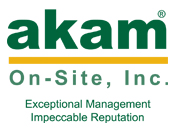 Create a Successful Board
Create a Successful Board
By Regan Marock
To create a successful board, it requires a group of individuals who bring different skills and experiences to work together for the betterment of the community. Some qualities to look for when electing board members are effective leadership and strong communication. The board members will be making decisions that will affect the entire property, and it’s important to have trust and confidence in the elected officials.
With the ever-growing changes in technology, amenities, and décor, board members need to embrace change in order for the property to stay current and remain competitive in the marketplace. Board members should also consider forming committees to allow for fellow owners to participate in the oversight of some of the community’s details. Being a good delegator is key for board members.
A characteristic of a strong board member is thick skin. You’re not going to make everyone happy all of the time. Don’t take things personally, move forward, and do what’s best for the overall community.
For more information on AKAM On-Site, please contact Regan Marock by phone at (954) 843-2526, via email at rmarock@akam.com, or simply visit our website at akam.com.
 Understanding Your Role as a Board Member in a Community Association
Understanding Your Role as a Board Member in a Community Association
By Dan Tiernan, COO
Congratulations on joining your board of directors. No matter how successful you may have been in your previous career field, you can never be fully prepared for your experience on a community association board. To help you understand your role better, we will address the following question.
What Do Board Members Do?
Board members are responsible for the administration of the association. The association is responsible for the maintenance, management, and operation of the association property.
The duties of board members include but are not limited to the following items:
- Establishing an annual budget
- Conducting legal elections
- Overseeing the maintenance of the common elements
- Managing the finances
- Participating in board meetings
- Enforcing the rules and regulations
- Working with others to achieve the goals of the association.
Your job is a thankless job, but someone must do it. Hopefully, your neighbors will recognize that you are investing your time and energy for the benefit of your community, while they may be off fishing, playing golf, watching a movie, or otherwise enjoying themselves.
Dan Tiernan is Chief Operating Officer with Campbell Property Management. For more information, call (954) 427-8770 or visit www.CampbellPropertyManagement.com.
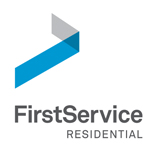 Essential Tips for New Association Board Members
Essential Tips for New Association Board Members
By Monique Johnson
Congratulations on being elected to your association’s board. So, what’s next? The great thing about associations is that owners have a vested interest in doing right by their community. Serving as a new board member can be challenging if you don’t know what is expected. Follow these new board member basics, and you’ll soon be governing like a pro.
- Understand your role completely. Your job is to protect the best interests of homeowners, help preserve the value of the homes in your community, and improve the quality of life of residents.
- Familiarize yourself with the governing documents. These include the declaration or master deed, articles of incorporation, bylaws, and rules and regulations.
- Character counts. It’s important that you never allow your integrity to be compromised. Put the community’s needs above your own. Be thoughtful and deliberate in your decision-making. Maintain a culture of transparency. And most of all, listen and be willing to work with others.
For more information on how to become a more effective board member, visit www.fsresidential.com.
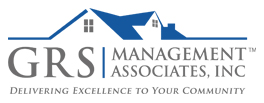 The Business of Boards
The Business of Boards
By Peggy West, LCAM
You’re running a business. Yes, I said business! We recommend these guidelines to be legal and efficient:
- Read your association’s governing documents.
- Take your required board certification class by 90 days after you are elected.
- Get acquainted with your past two years of financials.
- Understand and/or prepare a reserve study and implement reserves.
- Read your management contract and introduce yourself to the property manager.
- Learn about the community’s committees.
- Understand Robert’s Rules of Order to run an effective board meeting.
Stay calm and enjoy your director’s position. You have been elected, so your community believes in you! Your career will be helpful, along with good common sense. The best director’s listen to their residents with empathy and stay organized and on track financially. The reality is, “You’re running a business!’ Sincere congratulations! GRS—We’re here to help if you need us.
For more information on GRS Management Associates Inc., call (800) 568-4081 or visit www.grsmgt.com.
 Look at Your Association’s Financial Health
Look at Your Association’s Financial Health
By Sundeep Jay
If you are a new board member, the first thing to look at is the financial health of your association. The financial backbone of your association is reserves. Do you have enough monies set aside for major items such as roofing, painting, and paving? Is your association using an up-to-date independent reserve study, or is your association using budgeting numbers from past projects such as a roof replacement 15 years ago? It is important to evaluate your reserves on an annual basis. Though no homeowner likes increases in annual dues, surprise special assessments can be just as shocking—especially to buyers who have just purchased within the last two to three years. Review your reserves and make sure that all homeowners are aware whether your association is fully funding reserves or partially funding reserves. Projects will arise during your term, and the last thing you want to do is ask homeowners for money due to a lack of funds in your reserve account.
For more information on J. R. Frazer Inc, call (800) 298-0683, email jrfrazerent@aol.com, or visit www.jrfrazer.com.
 Online Portals Accommodate the Treasurer’s Role
Online Portals Accommodate the Treasurer’s Role
By Kim Juda
As the treasurer, you’re responsible for overseeing and monitoring the finances of the association. With the advancement of technology, association accounting service providers offer online access to assist you in your capacity as treasurer. These sites, commonly referred to as portals, have secured access only to those designated by the board and are continually updated. Online access is provided for records such as the financial statements, general ledgers, budgets, owner accounts details, paid invoices, contracts, and other information specific to your association. A more recent tool included in these portals that is becoming more customary and changing the overall accounts payables systems is the ability to approve invoices online prior to vendors being paid. After approval, depending on the board’s directives, the vendors can be paid automatically by a “robo” signing system, or paper copies can be provided to the board for hand signatures.
For more information on Juda, Eskew & Associates P.A., call (954) 577-9700 or visit www.homeownercpa.solutions.
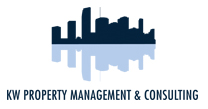 Welcome New Board Members
Welcome New Board Members
By Tim O’Keefe
Thank you for investing in your community as a new board member. Remember, your responsibility is now to the community as a whole. Your leadership style can make a positive difference. Over the years, we’ve found that the best board members follow these best practices. I hope you find them helpful.
- Show up on time; attend all board meetings.
- Walk your community regularly; pay attention to what you see.
- Build a relationship with your professionals. Know your attorney, accountant, engineer, property management team, and fellow board members.
- Educate yourself.
- Read and understand your association documents.
- Attend a board member certification class within 90 days of joining the board.
- Review your monthly financial statements and understand the impact of board decisions.
- Invest in your community. Properties deteriorate if not well maintained, which can decrease property values.
Congratulations! Work diligently to keep your property on a progressive path.
Tim O’Keefe is a Director with KW Property Management & Consulting. For more information, call (786) 910-4226,email tokeefe@kwpmc.com, or visit www.kwpmc.com.
 Get Certified
Get Certified
By Kevin M. Carroll
Where to Start?
All board members need to comply with their association’s governing documents and state law. An extensive review should be made of any controlling documents which form a contract among the homeowners within the association. Some documents may appear simple but can be confusing. Don’t hesitate to enlist professional assistance from your property manager and/or legal counsel.
Get Certified
Florida statutes 718 and 720 state that within 90 days after being elected or appointed to the board, each newly elected or appointed director shall certify in writing to the secretary of the association that he or she has read the association’s declaration, articles of incorporation, bylaws, and current written policies. In lieu of this written certification, the newly elected or appointed director may submit a certificate of satisfactory completion of the education curriculum administered by a division-approved education provider. I recommend that all new board members take the time to complete this Florida Board Member Certification program as much will be learned!
Kevin M. Carroll is President and CEO of Lang Management. For more information, call (561) 750-8800, email kmc@langmanagement.com, or visit www.langmgmt.com.
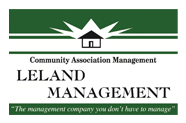 What are Reserve Studies and Why Do You Need Them?
What are Reserve Studies and Why Do You Need Them?
By Diane Braswell
A reserve study will provide an estimate of the funds necessary for an association to cover all major repair and replacement costs for common area components (such as roofs or pavements) over the long term. To start a reserve study, you will need an examination of the association’s repair and replacement obligations, a determination of costs and timing of replacement, and a determination of the availability of necessary cash resources. This information will supplement the annual operating budget in providing owners with financial information and shows owners and potential buyers a more accurate and complete picture of the association’s financial strength. This should disclose that the association is making provisions for non-annual maintenance requirements. With the new year coming up, it’s a great time to add this fund into the association’s new budget for the upcoming year.
Diane Braswell is Vice President with Leland Management. For more information, call (407) 447-9955 or visit www.lelandmanagement.com.
 “Make Every Board Meeting Productive” Is the Best New Year’s Resolution for Associations
“Make Every Board Meeting Productive” Is the Best New Year’s Resolution for Associations
By Tom Conner
There is a lot written about the mechanics of meetings, like notice requirements, quorums, using parliamentary procedures, delivering committee reports, and handling open forums. Our experience shows three practical techniques to create an effective meeting.
- Guide, don’t control, the meeting by sticking to the agenda and limiting ancillary discussion of topics. Schedule time allotments for each item, and establish the time for adjournment. This sets the expectation of a business-like meeting.
- When an item not on the agenda is brought up, take adequate time to understand its ramifications. Don’t make a snap decision. Homeowners will understand the board’s need to defer resolving a new problem to the next meeting. In Florida, if an item is not on the condominium meeting agenda, it cannot be voted upon.
- Prepare well, and think through the content ahead of time. Get updates on all projects and issues, and make sure formal reports are ready to deliver. It is much better to be prepared to answer questions with current details in order to set a positive tone with homeowners.
For more information on Sentry Management, call (800) 932-6636 or visit www.sentrymgt.com.



